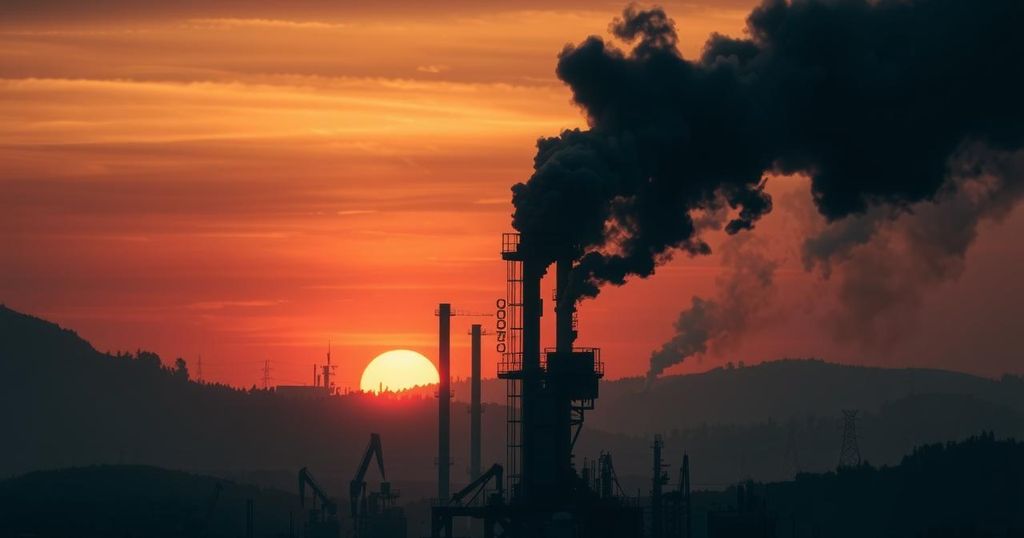Fighting near Sudan’s largest oil refinery caused extensive damage and smoke over Khartoum, worsening the humanitarian crisis. The facility was mainly intact until a recent assault ignited large fires. Despite international efforts to mediate, violence continues between military forces and the RSF, resulting in a devastating impact on civilians and infrastructure in the region.
Recently, intense fighting near Sudan’s largest oil refinery resulted in significant damage to the facility, according to satellite data from NASA. This incident has led to extensive black smoke billowing over Khartoum, the capital, exacerbating an already dire humanitarian situation in the country. The refinery, critical for oil processing and owned by the Sudanese government and the China National Petroleum Corporation, faced continuous threats as conflict between military forces and the rebel Rapid Support Force (RSF) escalates.
The al-Jaili refinery, located approximately 60 kilometers north of Khartoum, has seen previous attacks amid the ongoing civil war that has gripped Sudan since April 2023. The RSF reported having control over the facility and had fortified it with landmines to deter military advances. Despite its previous avoidance of major damage, a recent assault on the refinery triggered a substantial fire that spread throughout the complex, as indicated by satellite imagery.
Satellite images captured by Planet Labs PBC highlighted extensive flames engulfing various sections of the refinery. The facility, which processes up to 100,000 barrels of oil per day, was predominantly intact until the recent attacks led to flames reaching considerable heights. The assault highlights the escalating violence impacting Sudan’s vital infrastructure during a humanitarian crisis marked by famine and distressful living conditions for many civilians.
Despite international mediation efforts and reports of atrocities committed by the RSF, including a U.S. assessment labeling their actions as genocide, the fighting continues unabated. The dire security provisions and lack of an effective resolution underscore the complicated nature of the conflict in Sudan. The situation remains critical, with grave implications for both the energy sector and civilian populations in the region.
The ongoing civil war in Sudan has led to systemic violence, humanitarian crises, and damage to critical infrastructures. This conflict, primarily between Sudan’s military forces and the Rapid Support Force, has created widespread famine and distress among civilians. The al-Jaili refinery is crucial for oil production, emphasizing the economic stakes involved in the struggle for control between warring factions. Continued attempts at international mediation showcase the complexity of the conflict and the challenges in achieving peace.
In summary, the recent attack on Sudan’s largest oil refinery has intensified the already catastrophic humanitarian crisis while marking a significant development in the ongoing civil war. The al-Jaili facility’s destruction underscores the brutal realities faced by Sudanese citizens amid the struggle for power between military forces. As the conflict escalates, the consequences for the nation’s energy capabilities and overall stability become increasingly dire.
Original Source: www.scmp.com






